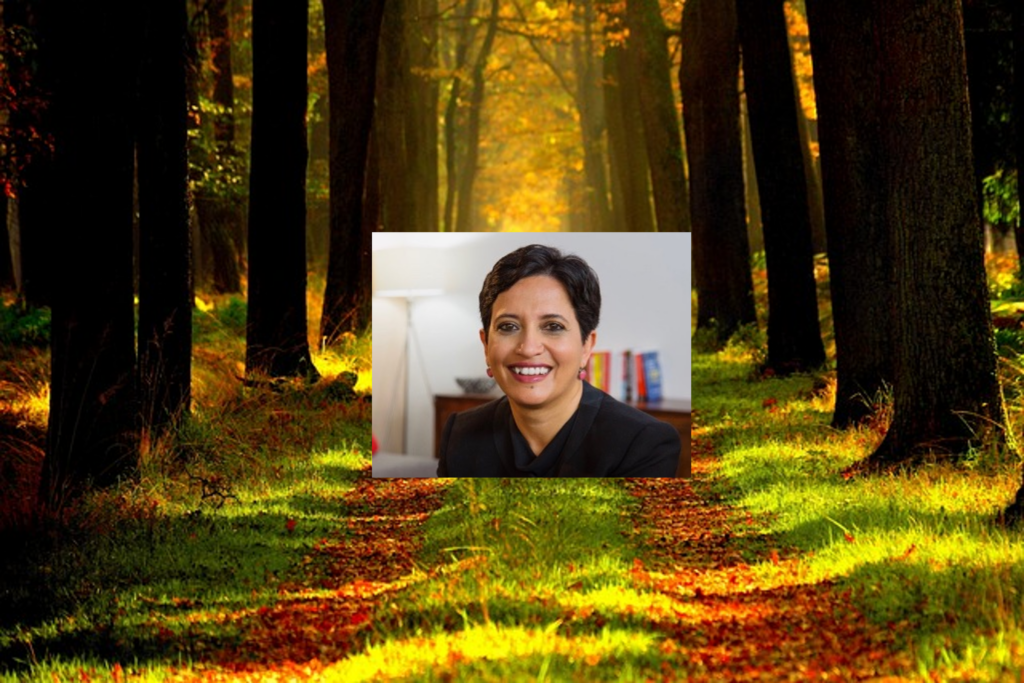Entrepreneur Journeys
The Startup Velocity Question: What Hinders Acceleration in VC Funded Companies?

I have been running 1Mby1M since 2010. I find myself saying to entrepreneurs ad nauseam that VCs want to invest in startups that can go from zero to $100 million in revenue in 5 to 7 years.
Startups that do not have what it takes to achieve velocity should not be venture funded.
Experienced VCs, over time, have developed heuristics to gauge what constitutes a high growth venture investment thesis.
>>>1Mby1M Udemy Courses with Sramana Mitra: Bootstrapping

Over the course of two years, we have released over 70 courses on Udemy with the aim to democratize entrepreneurship education at scale globally. This series of posts aims to help you find the one you need easily and provide you with discount coupons.
>>>From Non-profit To IPO: The Turnaround Of Grand Canyon University: Brent Richardson (Part 1)
Brent Richardson is the executive chairman of the board for Grand Canyon University. He joined GCU in 2003 as the CEO and led the transformation of a near-bankrupt university into an IPO success story. Prior to GCU, he was the founder of multiple companies and CEO of Masters Online. In his early career, he gained a background in sales working for Prescription Learning, a company founded by his father.
SM: First, let’s cover your background before Grand Canyon University. Where do you come from and what kind of career path did you follow?
BR: I have been in the education space for over 20 years. In 1987, I started a company called Educational Management Group. We were doing distance education to K-12 schools through satellite at the time. >>>
Featured Videos
Can 1M/1M Help Me Raise Money?
How Does 1M/1M Democratize Entrepreneurship Education?
How Does 1M/1M Democratize Management Consulting?
When Is The Right Time To Join 1M/1M?
Can 1M/1M Help Me With Business Development?
Can 1M/1M Help Me With Market Sizing?
Can 1M/1M Help Me Validate My Product?
Will I Have Private 1-on-1 Sessions In 1M/1M?
How Does 1M/1M Help Entrepreneurs Connect With Silicon Valley?
Mentoring or Consulting?
Why Does 1M/1M Charge $1000 a Year?
Why Does 1M/1M Partner With Local Organizations?
Why Don\’t Mentoring Networks Work?
Why Is It Important To Study With 1M/1M Now?
Dan Stewart Story
Vikrant Mathur Story
Teaching K-12 Math Online: Reasoning Mind CEO Alex Khachatryan (Part 1)
SM: Let’s start with a bit of your history. Where do you come from?
AK: I am from the former Soviet Union. I was born and raised in Moscow and immigrated to the United States in 1990. have lived here ever since. >>>
The Long Road to Edutainment: Tabula Digita CEO Ntiedo Etuk (Part 1)
Ntiedo Etuk is a graduate of Cornell University’s School of Electrical Engineering. He also holds an MBA from Columbia Business School, where he was a Beta Gamma Sigma graduate. He has managed the creation, implementation and analysis of various consumer products for Bank One and Citigroup. With Citigroup he was selected to work directly with the Chief of Staff to Citigroup’s president, Bob Willumstad. Ntiedo left Citigroup in April of 2004 to focus on Tabula Digita full time.
SM: Let’s start with your background. Where does your journey begin?
NE: I was born in Nigeria. My father is Nigerian and my mother is from the Bahamas. They met in Canada. From day one I was brought up with a sense and the expectation that I would do more for the community. >>>
Venture Capital in China: David Chao of DCM (Part 1)
David Chao is the co-founder and general partner of DCM. He has been active in the information technology industry since the 1980s. At DCM, he guides portfolio companies in formulating corporate and product marketing strategies, developing strong management teams and implementing domestic and international partnerships.
SM: Let’s start by talking about your background. What experiences have shaped your thought processes?
DC: I am ethnically Chinese. I was born and raised in Japan. By definition I am a Chinese/Japanese, but I came here for high school and college, and did work between college and business school in both Japan and Asia. I am a product of three cultures. I am a Chinese/Japanese/American. >>>
Driving Solar Growth Through Financing: SolarCity CEO Lyndon Rive (Part 1)
Lyndon Rive co-founded SolarCity with his brother in July 2006. In its first three years, SolarCity became the largest residential solar power provider in California and grew to over 350 employees serving over 500 communities in three states. Prior to SolarCity, Lyndon founded Everdream, an industry leader in software and services for large-scale distributed computer management. A lifelong entrepreneur, Lyndon founded his first company at the age of 17 in South Africa, and in his spare time he has been a member of the U.S. National Underwater Hockey Team.
SM: Lyndon, where is your accent from?
LR: I was born and raised in Victoria, South Africa. >>>
Pioneering Real-time Computing: TIBCO CEO Vivek Ranadivé (Part 1)
Vivek Ranadivé founded TIBCO in 1985. He is also the author of the New York Times business bestseller “The Power of Now: How Winning Companies Sense and Respond to Change Using Real-time Technology” (McGraw-Hill, 1999). He was one of InfoWorld’s 2002 Top Ten Technology Innovators and was recognized by Ernst & Young as a 2002 Software Entrepreneur of the Year.
Prior to founding TIBCO, Vivek founded a UNIX consulting company. Prior to that, he held management and engineering positions with Ford Motor Company, M/A-COM Linkabit and Fortune Systems. He earned an MBA from Harvard Business School, where he was a Baker Scholar. He received both master’s and bachelor’s degrees in electrical engineering from the Massachusetts Institute of Technology.
SM: Vivek, where does your story begin? Where did you grow up and what was the environment like?
VR: My story begins in Bombay and yes, I still call it Bombay. >>>
From Semiconductors to Green Power: Borrego CEO Mike Hall (Part 1)
Mike Hall serves as CEO and board member for Borrego Solar Systems, Inc. Mike has been with Borrego Solar since 2002. Prior to joining the company, he worked as a product development engineer for Applied Materials in Santa Clara. He holds a MS in Chemical Engineering from Stanford University and a BS in Chemical Engineering from the University California, Santa Barbara.
SM: Tell us a bit about yourself. Where did you grow up and where do you come from?
MH: I grew up in San Diego. I had a pretty normal childhood and was an athlete in high school. I went to college at University of California, Santa Barbara. >>>
The Future Of Venture Capital: Trinity Ventures Partner Gus Tai (Part 1)
Gus Tai is a General Partner at Trinity Ventures and joined the firm in 1996. He focuses on consumer-enabling technologies and services and enterprise software. His past investments include Blue Nile, eSurance, Photobucket and Sygate. He has an undergraduate degree in mathematics from Harvard and an MS in engineering and an MBA from MIT.
SM: Gus, as far as I remember you entered the venture business in 1996. What was it like, and what were the rules of the game? Why did you enter the venture business?
GT: I entered the venture business in 1996 after several years of observing it. I probably knew more about the business than most people outside of the industry. >>>
From Startup To 500 Million Dollars: VistaPrint CEO Robert Keane (Part 1)
If you haven’t already, please study our free Bootstrapping course.
Robert Keane is the president and CEO of VistaPrint, which he founded in 1995 to provide small businesses print tools to market their business. Robert’s vision for VistaPrint emerged from his experience with the development of a retail kiosk design and printing system as well as from his knowledge of the small business desktop publishing software market. He earned his B.A. in Economics from Harvard College in Cambridge, Mass. and his M.B.A. from INSEAD in Fontainebleau, France.
SM: Take us back to where your story begins. Where are you from?
RK: I grew up outside of Buffalo, New York by the Canadian border. I went to school at Harvard and worked in Boston for a while before moving to France. >>>
Helping Moms Juggle: Juggling Mother Sara Sutton Fell, CEO of Flexjobs (Part 1)
Sara is the CEO of Flexjobs. Prior to this, she was the co-founder of JobDirect, an entry-level job service for college graduates. After JobDirect, she founded Flexjobs to promote professional, legitimate telecommuting jobs. Flexjobs embodies the telecommuting philosophy, and its own staff is located throughout the country where they work from their homes.
SM: To start, tell us the genesis of your story. Where are you from? What kind of environment did you grow up in?
SS: I had a wonderful childhood. I had more parents than fewer parents. My parents divorced when I was six and both remarried; I had four parents and four siblings. It was a nice, chaotic, busy life! >>>
